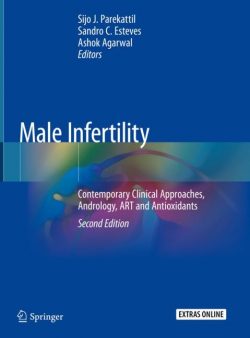This book provides comprehensive insights into congenital heart disease from embryonic development through to clinical features, including human genetics and our current knowledge of the underlying molecular pathways. It is divided into three parts: an introduction to the development of the heart and its vessels, an overview of the molecular pathways affecting the development of various cardiovascular structures, and a main section focusing on the different types of structural and nonstructural congenital heart diseases, including their clinical features, underlying genetic alterations and related animal models and pathways. Taken together these chapters, which were written by and for clinicians and researchers, provide an integrated and cutting-edge resource for all those who want to learn more about both the clinical aspects and the genetic and molecular basis of congenital heart disease.
Section I: General introduction in cardiac development.- Section II: Different chapters covering the different types of congenital heart disease.- Section III: The overall perspective.
“The book describes the different pathologies comprising congenital heart disease. … The audience is adult or pediatric cardiologists who care for patients with congenital heart disease. … This is a great resource, especially geared for cardiologists or cardiology team members with an existing fundamental knowledge of CHD, as well as those engaged in the bench research side.” (Shawn Ragbir, Doody’s Book Reviews, March, 2016)
Silke Rickert-Sperling, MD, is Professor of Cardiovascular Genetics at the Charité, Medical University Berlin and coopted professor at the Faculty of Biology, Chemistry and Pharmacy of the Free University Berlin. She leads an interdisciplinary research group at the ECRC (Cardiovascular Genetics Group). Her research focuses on elucidating the molecular mechanisms as well as genetic parameters underlying cardiac development in health and disease. She hopes to combine knowledge of molecular etiologies and mechanisms to eventually improve preventive and therapeutic opportunities for patients.
Robert Kelly, PhD, is Group Leader at the Developmental Biology Institute of Marseilles – Luminy in France. His groups´ research focuses on the cellular and molecular processes regulating development of these progenitor cells in the mouse and their contribution to the developing heart and craniofacial skeletal muscles.
Dr Driscoll is Professor of Pediatrics, Mayo Clinic College of Medicine and the Mayo Clinic, Rochester, Minnesota, USA. He is emeritus chair of the Division of Pediatric Cardiology, Mayo Clinic.
Dr Driscoll was chair of the Committee on Cardiovascular Diseases of the Young of the American Heart Association. He served as chair and editor of the sub-board of Pediatric Cardiology of the American Board of Pediatrics. He co-edited the 6th, 7th, and 8th editions of Moss and Adams’ “Heart Disease in Infants, Children, and Adolescents”. He authored the textbooks “Fundamentals of Pediatric Cardiology” and “Interpretation of Intracardiac Electrograms”. In addition, he has published over 200 peer review manuscripts covering a wide variety of cardiac issues.
This book provides comprehensive insights into congenital heart disease from embryonic development through to clinical features, including human genetics and our current knowledge of the underlying molecular pathways. It is divided into three parts: an introduction to the development of the heart and its vessels, an overview of the molecular pathways affecting the development of various cardiovascular structures, and a main section focusing on the different types of structural and nonstructural congenital heart diseases, including their clinical features, underlying genetic alterations and related animal models and pathways. Taken together these chapters, which were written by and for clinicians and researchers, provide an integrated and cutting-edge resource for all those who want to learn more about both the clinical aspects and the genetic and molecular basis of congenital heart disease.
Interdisciplinary work on congenital heart diseases
Provides insight into molecular and genetic aspects as well as into diagnosis and treatment
Describes in detail the development of the heart in health and diseases
Addresses biomedical researchers and clinicians alike
“I am very glad that I came across your book “Congenital heart diseases: The Broken Heart” which has become very handy to look into the details of the developmental aspect of different heart diseases with animal models. I bought an electronic book, which I really like. Thank you for bringing out this book. I believe this will help young generation of pediatric cardiologists and researchers to understand the genetic/biological mechanisms of these disorders.” (Laxmi Ghimire, MD, Clinical Fellow, PGY5, Pediatric Cardiology, UCSF Benioff Children’s Hospital, San Francisco, CA)





